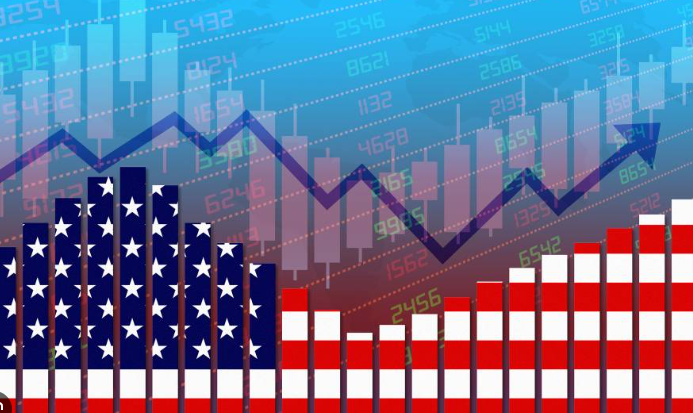Economists Forecast Potential Risks for US Economy in 2024

Leading economists are sounding the alarm about potential dangers facing the U.S. economy in 2024. With a combination of factors at play, experts caution that the year ahead could present significant economic challenges that require careful navigation by policymakers and businesses alike.
Rising Inflation and Interest Rates
One of the primary concerns is the persistent inflation that has been affecting the economy. Despite efforts by the Federal Reserve to control inflation through interest rate hikes, prices for goods and services remain high. Economists warn that if inflation continues unchecked, it could erode consumer purchasing power and stifle economic growth.
Potential Recession
There is also increasing talk of a potential recession. While the economy has shown resilience in the face of previous downturns, the combination of high inflation, rising interest rates, and global economic uncertainties could push the U.S. into a recession. Economists emphasize the importance of preparedness and strategic planning to mitigate the impacts of a potential economic slowdown.
Global Economic Uncertainty
Global economic conditions add another layer of complexity. Ongoing geopolitical tensions, supply chain disruptions, and economic instability in key markets like Europe and Asia could have ripple effects on the U.S. economy. These factors contribute to the overall uncertainty and make it challenging to predict economic trends with confidence.
Consumer Debt Levels
High levels of consumer debt are another area of concern. With interest rates rising, the cost of borrowing is increasing, putting additional pressure on households already struggling with high living costs. This situation could lead to a decrease in consumer spending, which is a critical driver of economic growth.
Housing Market Instability
The housing market, which has experienced significant price increases in recent years, may also face instability. Rising mortgage rates could dampen demand, leading to a potential correction in home prices. Such a shift could impact homeowners’ wealth and reduce economic activity related to real estate.
Corporate Debt and Investment
Corporate debt levels are also at historically high levels. As companies face higher borrowing costs, there could be a reduction in investment in new projects and expansion plans. This reduction in investment could slow job growth and innovation, further impacting economic performance.
Policy Responses and Mitigation Strategies
Economists stress the need for effective policy responses to navigate these challenges. This includes continued efforts by the Federal Reserve to manage inflation, as well as targeted fiscal policies to support vulnerable sectors and stimulate economic activity. Collaboration between government, businesses, and financial institutions will be essential to address the multifaceted risks.
Economic Resilience and Adaptation
While the outlook presents significant risks, there are also opportunities for resilience and adaptation. Technological advancements, infrastructure investments, and a focus on sustainable economic practices could help mitigate some of the potential negative impacts and set the stage for long-term growth.
As 2024 approaches, the warnings from economists highlight the importance of vigilance and proactive measures to safeguard the U.S. economy. By addressing these challenges head-on, the country can work towards a more stable and prosperous economic future.





